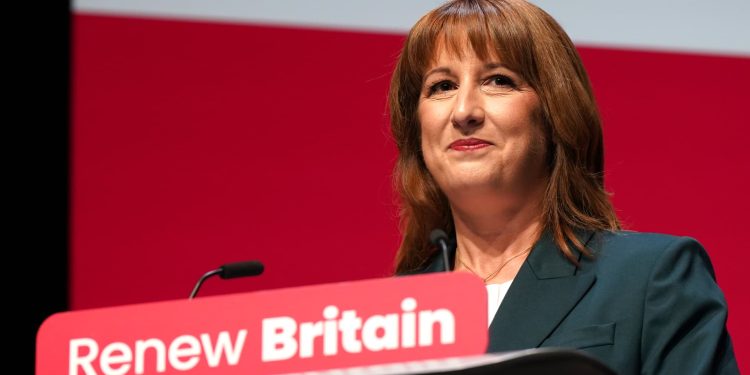Chancellor of the Exchequer Rachel Reeves speaks on stage at the Labor Party conference on September 29, 2025 in Liverpool, England.
Ian Forsyth | Getty Images
Britain’s Finance Minister Rachel Reeves reiterated her commitment to the government’s self-imposed fiscal rules, but said it needed to be honest with the public about the challenges facing the country.
Speaking to CNBC’s Karen Tso on the sidelines of the IMF’s annual meeting in Washington, D.C., on Friday, Reeves cited the Russian-Ukraine conflict, tensions in the Middle East and the impact of global trade barriers as major challenges.
“The bottom line for me is that as chancellor I am determined… to be honest with people about the challenges we face,” she said. “I will respond to those regarding the budget.”
On November 26, Reeves will present her second autumn budget since becoming Chancellor of the Exchequer. The policies announced in the upcoming budget come as the UK struggles with a faltering economy, inflated prices and high public borrowing costs.
Reeves would not focus on individual measures in the Budget, such as the possibility of a bank tax, but said she wanted the UK to be competitive for businesses to “start, grow and scale”.
“We want Britain to be seen globally as the place to trade, invest, do business and attract international talent,” Reeves said.
She added that UK financial regulators must consider growth, not just risk.
Reeves has been under constant pressure since last year’s fall budget, when she announced strict rules limiting the government’s room to maneuver on spending and borrowing. Under its budget rules, day-to-day public spending must be financed by tax revenues, not borrowing, and Reeves has also pledged to ensure that public debt falls as a proportion of economic output by 2029-30.
However, earlier this week she suggested that to meet these conditions she may have to break with an earlier manifesto pledge not to raise taxes on workers. His other options are to break his own budget rules or find other ways to cut government spending.
All of these options would be unpopular with voters.
Markets on alert
Breaking its self-imposed fiscal rules could spook financial markets. When questions were raised earlier this year about Reeves’ future in government, bond markets sparked a drastic reaction that suggested investors wanted her to stay in her job and play by the rules.
With the United Kingdom 30-year government bond yields trading well above 5%, the country’s government has the highest long-term borrowing costs of any G7 country.
Reeves declined to comment on the bond moves, but said markets could see that the government continued to play by its fiscal rules, adding that it would continue on the path of fiscal consolidation.
“We have known that the deficit has been too high for some years and, as Chancellor, I am determined to reduce borrowing costs, reduce debt and ensure economic growth based on this program of fiscal responsibility,” she added.
Previous efforts to reduce the country’s welfare bill were thwarted when lawmakers from Reeves’ own party refused to back his plans, leading to concessions that effectively wiped out £5 billion ($6.7 billion) in savings.
Last year’s tax raid on businesses also encountered difficulties, with many businesses expressing reluctance to hire staff as a result.
— CNBC’s Holly Ellyatt contributed to this report.








